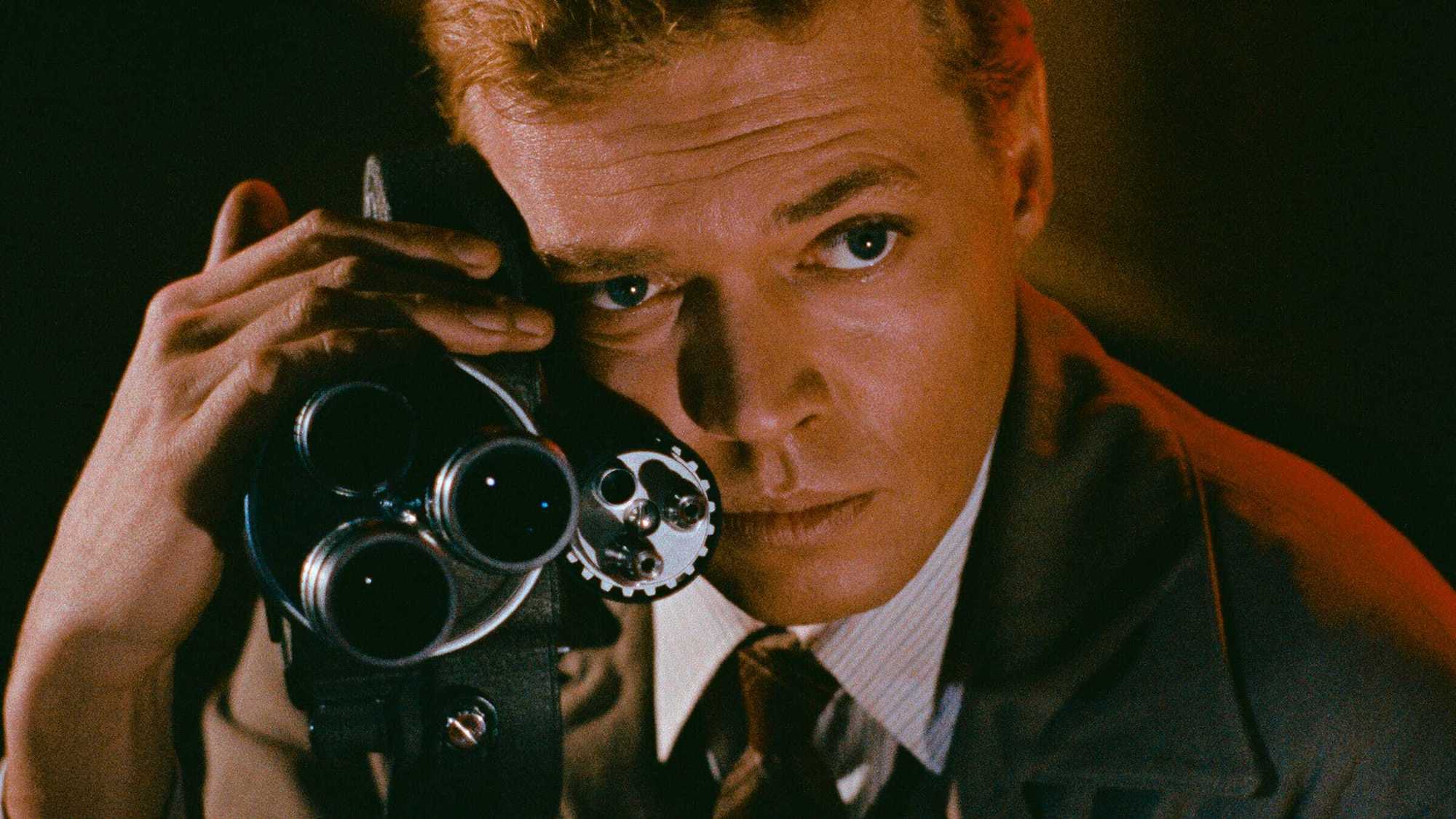Critically and commercially loathed and dismissed upon its release, championed and revived by Martin Scorsese, and now restored in a majestic 4K transfer, master filmmaker Michael Powell’s twisted, voyeuristic psychological thriller about a serial killer whose chosen weapon is a camera is even more alarming – and alarmingly prescient – than ever.

If anything deserves the ‘dark masterpiece’ tag, this does: a brilliant satirical insight into the neurotic, pornographic element in the act of filming, more relevant than ever in the age of reality television and CCTV.
Screened as part of 2024
Peeping Tom 1960
| Aug 02 | | ||
| Aug 07 | |
Throughout the 1940s and ’50s, filmmaker Michael Powell was better known as one half of The Archers, aka Powell and Pressburger, the enormously influential duo behind myriad masterpieces including The Red Shoes (NZIFF 2010), Black Narcissus, The Life and Death of Colonel Blimp, A Matter of Life and Death, and so on. When the pair amicably split in the late ’50s, both filmmakers’ careers saw a significant downturn in quality – that is, except for Peeping Tom, a dangerous and fascinating outlier in Powell’s career and a remarkably incisive psychological thriller. It is perhaps the first ever “slasher” thriller, and one that would inspire filmmakers as varied as Martin Scorsese, Brian DePalma and Michael Haneke. Carl Boehm stars as Mark Lewis, a tortured loner who longs to become a great director. Working onset as a focus puller by day and moonlighting as a lewd photographer by night, Mark is working on a film “about fear”, which involves him capturing the final moments of women he murders with a custom-designed camera tripod that doubles as a knife.
With Peeping Tom, Powell offered up his own addition to the provocative, psychologically complex pictures being made by the likes of Alfred Hitchcock and Henri Georges-Clouzot. Released the same year as Hitchock’s Psycho, Powell’s film shares that film’s taboo-breaking menace, all the while offering up a trenchant satire of the film industry that still resonates today (early on, a slimy studio executive exclaims, “In light of the new economy drive, if you can see it and hear it, the first take’s okay”, likely echoing the sentiments of higher-ups in modern Hollywood).
Perhaps most fascinating, though, is the way Powell pushes past even Hitchcock in his disturbing equation of the camera eye with perverse acts of murder, linking the audience’s voyeuristic pleasure to that of the killer himself. Mark’s weapon is profoundly suggestive – a watchful eye coupled with a (literally) pointed penetrative device. Titillation and terrible violence intermingle in the film, playing to our worst instincts even as it frightens us.
Throughout, Powell indicts himself as well – it is no mistake that Peeping Tom’s empathetic monster is a wannabe film director, and that he forfeits so much of his soul in the name of the pursuit of his terrible creation. In his memoir, Powell recounted being pitched the idea by screenwriter Leo Marks: ‘“Mr Powell, how would you like to make a film about a young man with a camera who kills the women that he photographs?”’ Powell replied: ‘“That’s me. I’d like it very much.”’ — Tom Augustine
-0-320-0-320.png?k=300d69ad06)